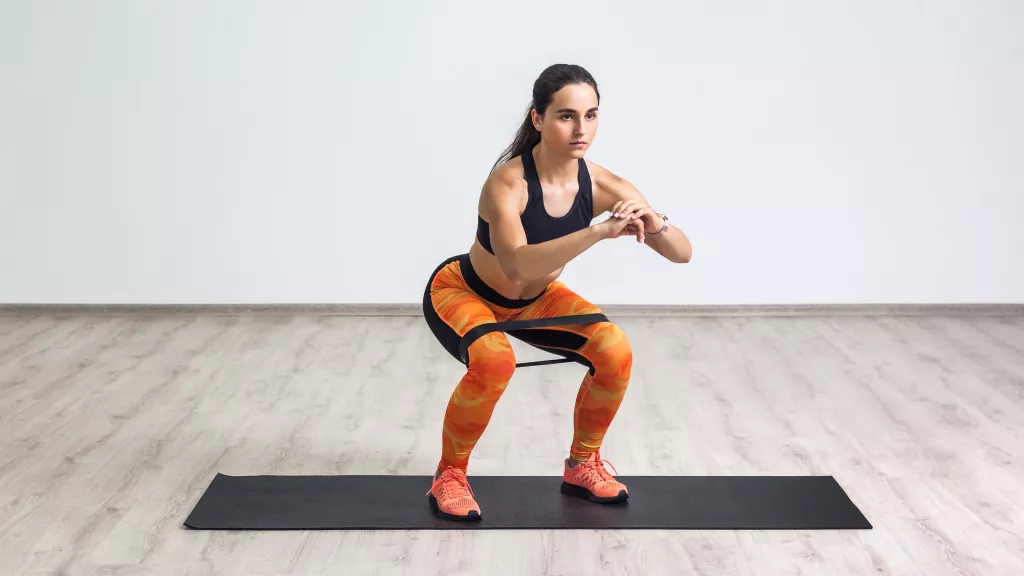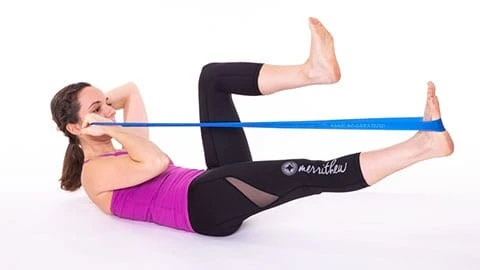Squats with Resistance Bands and Weight
Resistance band squats are a very effective exercise to help in your fitness. Squat with a resistance band. Squats with resistance bands and weight are a comprehensive guide.
Squats are a cornerstone of strength training, focusing on the lower body’s major muscle groups while promoting overall functional fitness. Integrating resistance bands and weights into your squat routine can offer an effective way to enhance muscle activation, increase intensity, and target specific muscle fibers. This comprehensive guide will walk you through the benefits, techniques, tips, and safety considerations for performing squats with resistance bands and weights.

Benefits of Squats with Resistance Bands and Weight:
Increased Muscle Engagement: Resistance bands provide accommodating resistance, meaning the tension increases as you reach the top of the squat. This helps activate your muscles more effectively throughout the entire range of motion.
Versatile Intensity:
Incorporating weights and Resistance Bands allows you to adjust the load according to your fitness level, gradually progressing as your strength improves.
Muscle Balance:
Resistance bands can address muscle imbalances by targeting stabilizing muscles and encouraging proper movement patterns.
Enhanced Functional Strength:
Squats with resistance bands and weights simulate real-life movements, promoting functional strength that can improve daily activities and sports performance.
Joint Stability:
The bands add lateral tension, challenging your hip and knee stabilizers, which can enhance joint stability and reduce injury risk.
How to Perform Squats with Resistance Bands and Weight:
Setup:
Place the resistance band just above your knees, ensuring it’s snug but not too tight.
Hold dumbbells by your sides or position the barbell across your upper back.
Execution:
Engage your core, and keep your chest up, and your shoulders back.
Inhale as you initiate the squat by pushing your hips back and bending your knees.
Lower yourself into the squat, keeping your knees in line with your toes. Aim for a 90-degree knee bend or deeper if your flexibility allows.
Breathing:
Inhale as you lower into the squat, and exhale as you rise from the squat, tips for Effective Execution
Maintain Form: Proper form is crucial. Focus on keeping your knees in line with your toes, chest up, and back straight.
Gradual Progression: Start with lighter weights and resistance bands to master the movement before increasing intensity.
Controlled Movement: Avoid rapid movements and maintain control throughout the squat.
Warm-Up: Perform a dynamic warm-up to prepare your muscles for the squatting motion.
Also, read this article
Exercise to lose belly fat at home without going gym center
Safety Considerations:
- If you’re new to squats or resistance training, seek guidance from a fitness professional to ensure proper technique.
- Avoid letting your knees collapse inward due to resistance bands.
Gradually increase the weight and resistance to avoid strain or injury. - If you experience discomfort, pain, or unusual strain, stop immediately and assess your form or reduce the weight.
Conclusion:
Squats with resistance bands and weights offer a dynamic and effective approach to building lower body strength and functional fitness. Integrating these tools into your squat routine can help you target specific muscles, increase intensity, and improve overall muscle engagement. However, safety and proper technique should always be a priority. By following the steps, tips, and safety considerations outlined in this guide, you can confidently incorporate squats with resistance bands and weights into your workout regimen, reaping the benefits of this powerful exercise.

